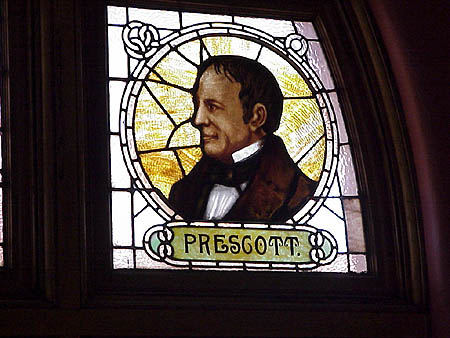
There it was--the pitying, accept-the-inevitable, "end of the road" head-tilt from yet another pediatrician. "Have you had her evaluated for autism?"
This was the moment when my nose finally felt the cold, hard surface of the wall in front of me. I looked at my young daughter, still non-verbal and clearly exhausted of being judged by people who couldn't see in her what I saw. It wasn't society's fault; there had to be some scale of normalcy upon which to judge. But their scale had no place for my little girl.
I went home and pondered my next move. When the practitioners and educators looked at my daughter, they saw a broken body. I saw a heart, a mind, and a soul. She was exquisite! But these people, who admitted that they didn't understand, were my only set of options. Weren't they?
I then realized the thing that would guide all my decisions to come. I was her mother. If the people 'out there' didn't have what she needed, I would have to become what she needed. I've been and done so many things since then, and there are certainly countless hats to wear in the future. But today, I teach private school in my basement.
My oldest daughter has Autism Spectrum Disorder. She falls in the moderate range of the spectrum--and yes, she can now carry on a considerable conversation! Everything that she's taught me has benefited the three children to come after her, especially my last, a toddler who shows symptoms like hers, though considerably milder. There are things I wish I had known much sooner in the process of home educating my special-needs children, but there was no one around to teach me at that time. If you find yourself in such a position, here are some things that might help:
1. No one will be as invested in your child as you are. It's the nature of the human family: the greatest personal effort is given to one's own offspring. Physicians, therapists, instructors, and friends may shown varied levels of interest in your kids, but at the end of the day, they all go home to their own children or other personal priorities. That's the natural order; it would be illogical to think otherwise. And yet many professionals would have us believe that we should turn over our judgment to them.
Learn all you can about your child. Be prepared to both teach and advocate. The better imformed you are, the more prepared you will be to sort the truth from the fiction, both in your educational and medical options. This is your child--the buck will always stop with you.
2. Surround yourself with people who understand #1. One of my family's most invaluable assets has been a pediatrician who understands that the parent will have the most to contribute to the child's well-being--information about the patient's habits, physiology, medical history, daily routines, dietary patterns, and developmental milestones. Additionally, he shares our philosophies about the practice of medicine, which has made us together an effective team in keeping our children healthy and perpetually improving.
It is likewise important that your friends, therapists, supplemental teachers, and community contacts are people you can count on to trust your judgment about your child. (While we cannot choose our extended family, we can find positive ways to reinforce our home education decisions to them.)
3. Do your homework when preparing your home education program. Especially with special needs students, you'll have to be well-prepared before your "school year" begins. Some children will need to be schooled around their daily physical needs or therapy appointments. Some will crave a strict daily routine. Some will require frequent schedule or lesson adaptations. Children with asymmetrical minds may require advanced curriculum in one subject and remedial in another, and many children will require an out-of-the-box teaching method to circumvent delays or disabilities. Know your child, and build a program stone by stone around his needs.
4. Be flexible. Expect interruptions, whether because of distractability, topic fixation, or even meltdowns that halt particular scheduled activities altogether. These are not failures. Remind yourself that all children (and all people, for that matter) occasionally get in their own way because of their weaknesses. Check your frustration, allow time to regroup, reinforce your love to your child, and try again when the tension has ebbed.
5. Stay informed. Keep up-to-date on the biological and therapeutic treatments available for your child's special needs. If new treatments to which you would ascribe are not locally available or prove to be cost-prohibitive, form long-distance relationships with those offering the treatments, find out if training is available to you, or seek out financial assistance.
Disorders and disbilities can be wildly enigmatic. For this reason alone, you may never find a teacher for your child as qualified as you. This may draw you into home education or simply motivate you to form your own program around your community options. Whatever you choose, remember that you need not have a master's degree that gives you license to teach every child. But you will need a master's degree in your child in order to provide him the highest quality of life possible. And you can do it!










